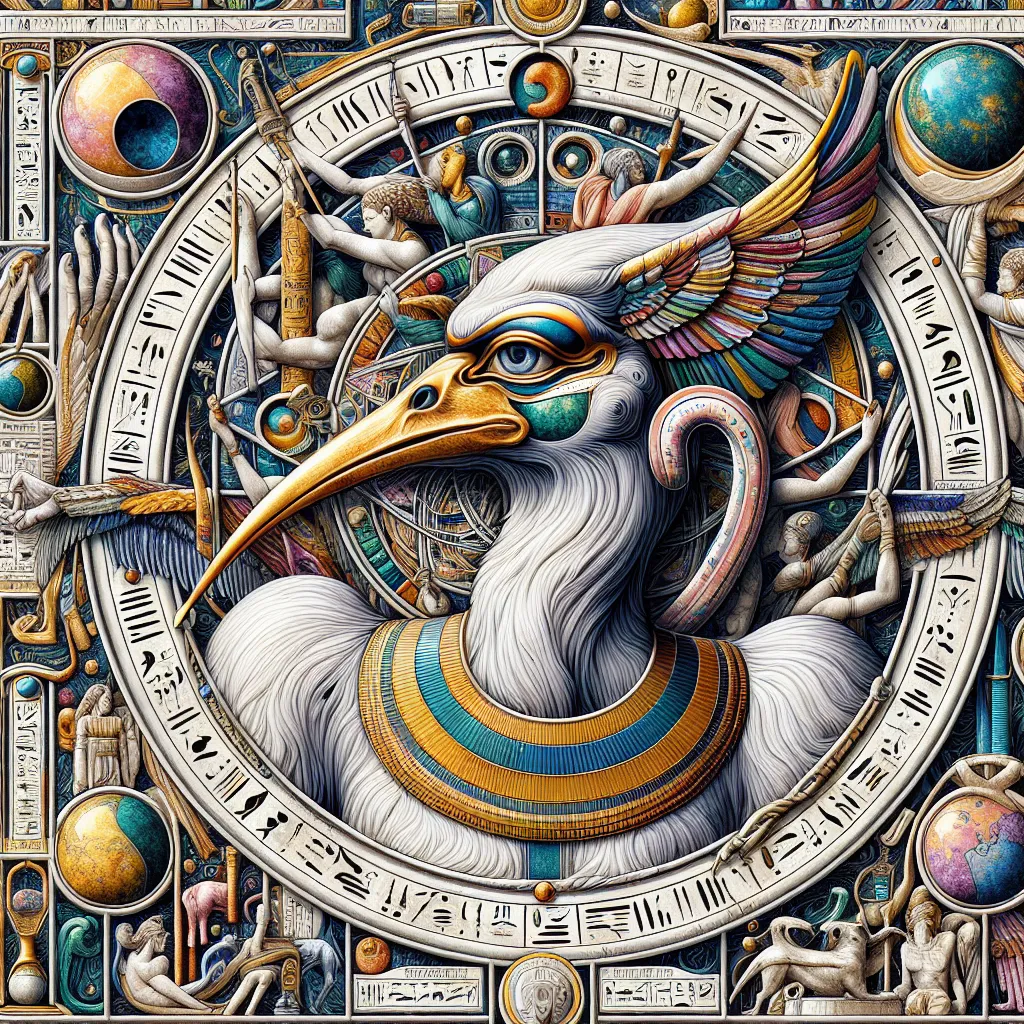
- Published on
- Authors

- Name
- You
Thoth and Magic: The God of Hidden Knowledge and Esoteric Practices
The enigmatic figure of Thoth, the ancient Egyptian god of writing, wisdom, and hidden knowledge, continues to fascinate scholars and practitioners of the occult alike. Through centuries, his influence has transcended geographical, historical, and even spiritual boundaries. This article delves into Thoths profound connection with magic, his role as a custodian of esoteric traditions, and his enduring legacy in both ancient and modern magickal practices.
The Historical Thoth
Origins and Attributes
Thoth, known in Egyptian mythology as Djehuty, is depicted as an ibis or a baboon, or sometimes as a man with the head of an ibis. He is regarded as the scribe of the gods, the inventor of writing and languages, and the keeper of the divine library.
Thoths Domains
| Domain | Description |
|---|---|
| Writing | Inventor of hieroglyphs and credited with the creation of the alphabet. |
| Wisdom | Emblematic of omniscience and divine intellect. |
| Time | Master of time, intervals, and lunar cycles. |
| Magic | Patron of magicians and esoteric knowledge. |
Thoth and Esoteric Practices
Hermetic Tradition
Thoths wisdom is encapsulated in the Hermetic tradition, named after Hermes Trismegistus, a syncretic figure that merges Thoth with the Greek god Hermes. The Hermetic texts, such as the Corpus Hermeticum, elaborate on Thoths teachings, focusing on alchemy, astrology, and theurgy.
Principle Teachings
- The Principle of Mentalism: "All is mind; the universe is mental."
- The Principle of Correspondence: "As above, so below; as below, so above."
- The Principle of Vibration: "Nothing rests; everything moves; everything vibrates."
Alchemy and Thoth
Alchemy, the ancient practice of transmuting base metals into noble ones, particularly gold, has deep roots in Thoths teachings. Alchemists regard Thoth as a guide and teacher whose insights into transformation and renewal are vital for both physical and spiritual alchemy.
Modern Occultism
In contemporary occult practices, Thoths influence is prominent. Practitioners of ceremonial magick and various esoteric orders, such as the Hermetic Order of the Golden Dawn, invoke Thoth in rituals aimed at accessing hidden knowledge and enhancing intellectual and spiritual faculties.
Rituals and Ceremonies Honoring Thoth
The Invocation of Thoth
Preparation
- Sacred Space: Create a sacred space with an altar adorned with symbols of Thoth—hieroglyphs, an ibis feather, and a scribe’s palette.
- Incense: Use frankincense and myrrh to purify the space.
- Candles: Light blue and white candles to represent Thoth’s wisdom and purity.
The Ritual
- Chant: Begin with a chant invoking Thoth, such as:
Thoth, Lord of Wisdom, Keeper of Time, Guide us with your eternal rhyme. Scribe of the gods, secret and wise, Open our minds, make us rise. - Meditation: Enter a meditative state, visualizing Thoth’s presence and seeking his guidance on specific matters of knowledge or esoteric wisdom.
- Offerings: Offer grains, honey, or a piece of papyrus inscribed with a personal prayer or intention.
Conclusion
Close the ritual by thanking Thoth for his wisdom, extinguishing the candles, and grounding yourself by touching the earth or a grounding stone such as hematite.
Conclusion
Thoth remains an ever-present force in the realm of magick and mysticism, embodying the synthesis of hidden knowledge, esoteric practices, and divine wisdom. His teachings continue to inspire and guide those who seek to unlock the secrets of the universe, bridging the ancient wisdom of Egypt with the ever-evolving landscape of modern occultism.
Through Thoth, we discover that the pursuit of knowledge and the practice of magick are intertwined, leading us on an endless journey towards enlightenment and spiritual ascension.
